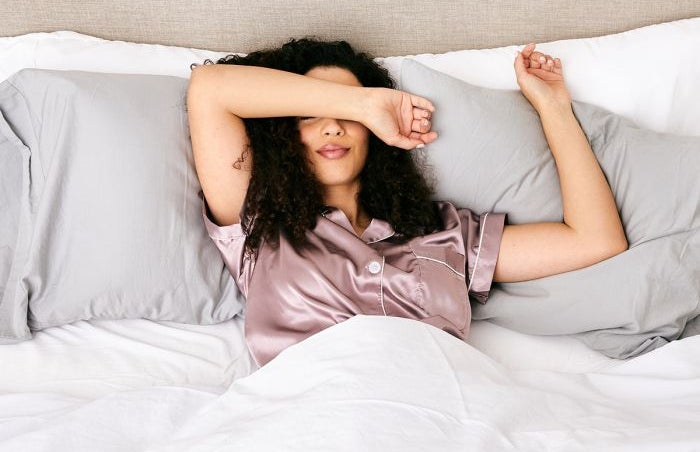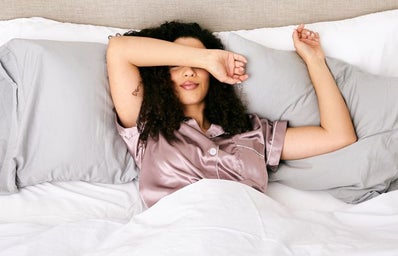If you are anything like me, the stars practically have to align for you to fall asleep at a reasonable time before you just pass out from exhaustion.
For me, my hair has to be up, I have to be sleeping in a certain position, and I can’t be too hot or too cold. While these tricks can usually help everyone, take note of what you do that helps you fall asleep/makes you feel the most comfortable.
First, try to have a bedtime. As a college kid, that can be hard with the long nights of assignments and projects, especially close to finals, but setting a time for a normal night (a night with less homework) will help your brain into a regular schedule of knowing it’s time to go to sleep. For me, it’s 11:30, but I know I can stay up later if I have something like homework keeping me awake. Also, make sure to prioritize and use your time wisely. Procrastination is a b*tch, but the more you do now when you have time between classes, the less is keeping you up way into the night.
Science fact: your brain can only start to calm down and enter the sleep cycle when there is less activity in your brain. Your brain reacts to light, which stimulates the suprachiasmatic nucleus (SCN), which are clusters of thousands of cells in a part of the brain called the hypothalamus. This is what keeps you awake and why so many people say that you should stay off your phone or any electronics and turn down the lights to fall asleep. The less stimulation around you, the easier it is to fall asleep. Another trick is to turn your clock away from you. Constantly checking the time can cause more stress and, therefore, more brain activity.
Other tricks include doing yoga, meditation, and mindfulness practices also to slow down brain activity. Drinking tea like chamomile, sometimes known as “sleepy time tea,” can help calm you down. Breathing exercises, like the “4-7-8” breathing techniques, can slow down breathing, relax you, and make it easier to fall asleep. There are also some apps: Calm, Mindshift, and RelaxMelodies, which can help the feelings of anxiousness with meditation practices, breathing exercises and music or ambient sounds like storms, rain, piano music, etc. that can help lull people to sleep.
Learning how to fall asleep quicker and easier and trying to understanding what works best for you is very much a personal journey. Don’t get frustrated and take care of yourself.


